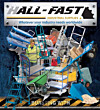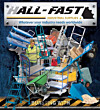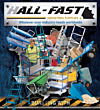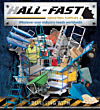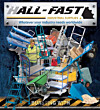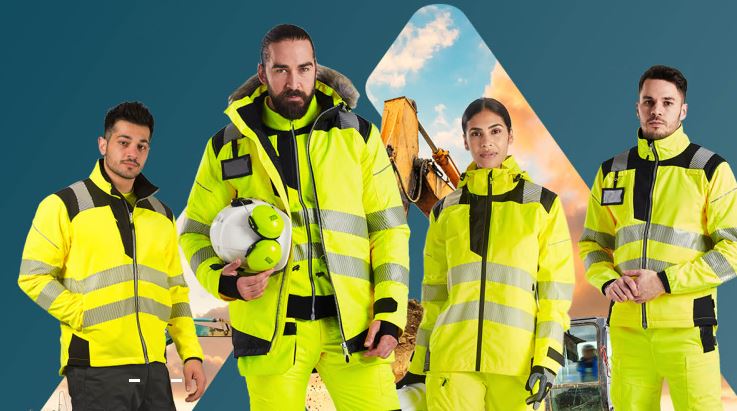
The shift toward sustainable workwear represents one of the most significant transformations in the professional clothing industry. As East Midlands businesses increasingly prioritize environmental responsibility, from Derby's advanced manufacturing sector to Nottingham's pharmaceutical industry and Leicester's growing technology corridor, sustainable workwear has emerged as a crucial component of corporate sustainability strategies across the region. This comprehensive guide explores how sustainable workwear solutions can reduce environmental impact while maintaining the highest standards of safety, comfort, and professional appearance for East Midlands businesses.
Understanding Sustainable Workwear
Sustainable workwear encompasses clothing designed, manufactured, and distributed using environmentally responsible practices. This approach considers the entire product lifecycle, from raw material sourcing through manufacturing, distribution, use, and eventual disposal or recycling. The goal is to minimize environmental impact while maintaining the functionality, durability, and professional appearance that modern UK businesses demand.
The concept of sustainable workwear extends beyond simply using eco-friendly materials. It includes considerations for manufacturing processes, supply chain transparency, worker welfare, product longevity, and end-of-life disposal. This holistic approach ensures that workwear choices contribute positively to environmental and social sustainability objectives.
The Environmental Impact of Traditional Workwear
Traditional workwear production contributes significantly to environmental challenges. The textile industry ranks among the world's most polluting industries, contributing to water pollution, chemical contamination, and significant carbon emissions. Conventional cotton production requires enormous amounts of water and pesticides, while synthetic materials are typically petroleum-based and non-biodegradable.
Manufacturing processes often involve harmful chemicals, excessive water usage, and energy-intensive production methods. Transportation of materials and finished products adds to carbon footprints, while the relatively short lifespan of many workwear items contributes to waste problems. Understanding these impacts helps UK businesses make informed decisions about sustainable workwear alternatives.
Hall-Fast's Commitment to Sustainable Workwear
Since beginning operations in August 2006, Hall-Fast has evolved its approach to workwear to embrace environmental responsibility across the East Midlands. The company's nearly two decades of experience serving businesses throughout Leicestershire, Nottinghamshire, Derbyshire, Northamptonshire, and Lincolnshire has fostered deep understanding of how East Midlands businesses can transition to sustainable workwear without compromising safety, functionality, or professional appearance.
Hall-Fast's comprehensive approach to sustainable workwear encompasses product selection, supply chain management, and customer education, with particular expertise in serving the East Midlands' diverse industrial sectors. With access to approximately 200,000 standard items, the company can guide businesses toward sustainable options that meet their specific requirements while supporting broader environmental objectives. Whether you're operating in Derby's aerospace industry, Nottingham's pharmaceutical sector, or Leicester's manufacturing base, Hall-Fast understands the unique sustainability challenges facing East Midlands businesses. Learn more about our commitment to sustainability on our About Us page.
Portwest Planet Range: Leading Sustainable Innovation
The Portwest Planet Range represents a breakthrough in sustainable workwear innovation. This collection demonstrates that environmental responsibility and professional performance can coexist, offering UK businesses access to high-quality workwear that supports their sustainability objectives.
Portwest's Planet Range incorporates recycled materials, sustainable manufacturing processes, and innovative design approaches that reduce environmental impact without compromising functionality. These garments maintain the durability, comfort, and professional appearance that businesses expect while contributing to environmental conservation.
Sustainable Materials in Modern Workwear
Recycled Polyester
Recycled polyester, created from post-consumer plastic bottles, offers excellent performance characteristics while reducing waste. This material provides moisture-wicking properties, durability, and easy care while contributing to circular economy principles.
Organic Cotton
Organic cotton production eliminates harmful pesticides and chemicals while using more sustainable farming practices. This material offers comfort and breathability while reducing environmental impact compared to conventional cotton.
Hemp and Linen
Natural fibers like hemp and linen provide excellent durability and comfort while requiring minimal water and no pesticides during production. These materials offer biodegradability and low environmental impact.
Recycled Wool
Recycled wool combines the excellent properties of wool with environmental benefits. This material offers natural temperature regulation and durability while reducing the need for new wool production.
Innovative Eco-Fabrics
Emerging sustainable materials include Tencel (made from sustainably sourced wood), recycled nylon, and innovative bio-based synthetic materials that offer performance benefits with reduced environmental impact.
Industries Embracing Sustainable Workwear
Healthcare and Medical Services
Healthcare facilities across the East Midlands, including NHS trusts and private medical centers throughout the region, are increasingly adopting sustainable workwear to support their environmental responsibility commitments. Hospital Scrubs made from sustainable materials maintain hygiene standards while reducing environmental impact.
Food Service Industry
The East Midlands' food service sector, from restaurants in Leicester to catering companies across Nottingham and Derby, benefits from sustainable workwear that meets hygiene requirements while supporting environmental objectives. Portwest Chefwear includes sustainable options that maintain food safety standards.
Manufacturing and Industrial
The East Midlands' strong manufacturing base, from automotive in Derby to textiles in Leicester and advanced manufacturing throughout the region, is integrating sustainable workwear into their environmental management systems. This includes everything from basic work clothing to specialized protective equipment made from sustainable materials.
Corporate and Professional Services
Professional services firms across the East Midlands, including those in major business centers like Leicester, Nottingham, and Derby, are adopting sustainable workwear to align with corporate sustainability commitments while maintaining professional appearance standards.
Education and Public Services
Educational institutions and public services throughout the East Midlands are embracing sustainable workwear to demonstrate environmental leadership while managing costs effectively across the region's diverse communities.
Benefits of Sustainable Workwear
Environmental Impact Reduction
Sustainable workwear directly reduces environmental impact through lower carbon footprints, reduced water usage, decreased chemical pollution, and minimized waste generation.
Cost Effectiveness
While sustainable workwear may require higher initial investment, the long-term benefits include reduced replacement costs, improved durability, and potential tax benefits for environmental initiatives.
Employee Satisfaction
Workers increasingly prefer employers who demonstrate environmental responsibility. Sustainable workwear can enhance employee satisfaction and support recruitment efforts.
Brand Reputation Enhancement
Businesses adopting sustainable workwear enhance their brand reputation and appeal to environmentally conscious customers and stakeholders.
Regulatory Compliance
Sustainable workwear helps businesses prepare for increasing environmental regulations and demonstrate proactive environmental management.
Sustainable Workwear Categories
Everyday Work Clothing
Basic work clothing made from sustainable materials provides environmental benefits without compromising comfort or durability. Portwest T-Shirts and Work Trousers include sustainable options.
Protective Workwear
Sustainable protective workwear maintains safety standards while reducing environmental impact. This includes hi-visibility clothing, protective outerwear, and specialized safety equipment.
Professional Uniforms
Professional uniforms made from sustainable materials support brand image while demonstrating environmental responsibility. These garments maintain professional appearance while supporting sustainability objectives.
Seasonal Workwear
Seasonal workwear including jackets, coats, and weather protection made from sustainable materials ensures year-round environmental responsibility.
Lifecycle Assessment of Sustainable Workwear
Raw Material Sourcing
Sustainable workwear begins with responsible raw material sourcing that minimizes environmental impact. This includes using recycled materials, organic fibers, and sustainably harvested natural materials.
Manufacturing Processes
Sustainable manufacturing processes minimize water usage, eliminate harmful chemicals, and reduce energy consumption. These processes often result in improved working conditions and reduced environmental impact.
Distribution and Transportation
Sustainable workwear distribution considers transportation impacts, packaging materials, and supply chain efficiency. Regional sourcing and efficient logistics reduce carbon footprints.
Product Use Phase
Sustainable workwear is designed for longevity, reducing replacement frequency and overall environmental impact. Proper care and maintenance extend product life and maximize environmental benefits.
End-of-Life Management
Sustainable workwear considers end-of-life disposal through design for recyclability, biodegradability, or take-back programs that ensure responsible disposal.
Implementing Sustainable Workwear Programs
Needs Assessment
Successful sustainable workwear programs begin with comprehensive needs assessment that identifies environmental objectives, performance requirements, and budget considerations. This is particularly important for East Midlands businesses operating across diverse industrial sectors with varying environmental challenges.
Stakeholder Engagement
Implementing sustainable workwear requires engagement with all stakeholders, from executive leadership to frontline employees. This engagement ensures program acceptance and maximizes benefits.
Phased Implementation
Gradual implementation allows businesses to assess performance and make adjustments while managing costs and ensuring continuous operation.
Performance Monitoring
Ongoing monitoring ensures sustainable workwear programs achieve environmental objectives while maintaining operational requirements.
Certifications and Standards
Global Organic Textile Standard (GOTS)
GOTS certification ensures organic fiber content and environmental criteria throughout the supply chain, providing assurance of sustainable practices.
OEKO-TEX Standards
OEKO-TEX certifications ensure textiles are free from harmful substances and produced using environmentally responsible processes.
Cradle to Cradle Certification
This certification assesses products across five categories: material health, renewable energy use, water stewardship, social fairness, and material reutilization.
Recycled Content Standards
Various standards verify recycled content in sustainable workwear, ensuring transparency and accountability in environmental claims.
Sustainable Workwear Maintenance
Care Instructions
Proper care extends the life of sustainable workwear while maintaining environmental benefits. This includes appropriate washing temperatures, eco-friendly detergents, and energy-efficient drying methods.
Repair and Refurbishment
Sustainable workwear programs often include repair and refurbishment services that extend product life and reduce waste.
Inventory Management
Efficient inventory management ensures optimal utilization of sustainable workwear while minimizing waste and overstock situations.
Cost Considerations
Initial Investment
Sustainable workwear may require higher initial investment, but this is often offset by improved durability, reduced replacement frequency, and potential cost savings.
Total Cost of Ownership
Sustainable workwear typically offers superior total cost of ownership through enhanced durability, improved employee satisfaction, and reduced environmental compliance costs.
Return on Investment
Sustainable workwear provides return on investment through improved brand reputation, employee satisfaction, and potential regulatory compliance benefits.
Hall-Fast's Sustainable Solutions
Hall-Fast's comprehensive approach to sustainable workwear includes product selection guidance, supply chain transparency, and ongoing support for sustainable programs. The company's expertise helps East Midlands businesses navigate the transition to sustainable workwear while maintaining operational efficiency across the region's diverse industrial landscape.
Through access to multiple brands on our brands page, Hall-Fast can provide comparative analysis of sustainable options and ensure East Midlands customers select the most appropriate solutions for their specific needs, whether operating in Derby's aerospace sector, Nottingham's pharmaceutical industry, or Leicester's manufacturing base.
International Sustainability Leadership
Hall-Fast's award-winning international success, documented on our Awards page, demonstrates the company's commitment to excellence in sustainable workwear solutions. This international experience brings global best practices to East Midlands businesses while maintaining focus on regional requirements and the specific needs of local industries.
Quality Assurance for Sustainable Workwear
Manufacturing Standards
Hall-Fast ensures all sustainable workwear meets stringent manufacturing standards while maintaining environmental benefits. This commitment ensures product quality and sustainability.
Testing and Validation
Comprehensive testing ensures sustainable workwear maintains performance characteristics while delivering environmental benefits throughout its service life.
Certification Compliance
All sustainable workwear supplied by Hall-Fast includes appropriate environmental certifications, ensuring businesses can demonstrate their environmental commitments.
Employee Education and Engagement
Sustainability Training
Employee education about sustainable workwear benefits enhances program acceptance and ensures proper care and maintenance.
Feedback Systems
Employee feedback systems ensure sustainable workwear programs meet user needs while achieving environmental objectives.
Continuous Improvement
Ongoing feedback and assessment enable continuous improvement of sustainable workwear programs.
Future Innovations
Advanced Sustainable Materials
Emerging sustainable materials promise enhanced performance characteristics while maintaining environmental benefits.
Circular Economy Integration
Future sustainable workwear programs will integrate circular economy principles, including take-back programs and closed-loop recycling.
Technology Integration
Advanced technologies will enhance sustainable workwear through improved materials, manufacturing processes, and lifecycle management.
Community Impact
As a family business committed to community support, Hall-Fast's approach to sustainable workwear reflects broader social responsibility values. Our Community page demonstrates how choosing Hall-Fast supports a business that contributes positively to society and the environment.
Getting Started with Sustainable Workwear
East Midlands businesses ready to transition to sustainable workwear can begin by assessing their current needs, identifying sustainability objectives, and developing implementation strategies. Hall-Fast's expertise can guide this transition while ensuring operational requirements are met across the region's diverse industrial sectors.
Contact Hall-Fast through our Contact page to discuss your sustainable workwear requirements and discover how our expertise can support your environmental objectives while maintaining operational excellence across the East Midlands.
Conclusion
Sustainable workwear represents a crucial investment in environmental responsibility, employee satisfaction, and long-term business success. With Hall-Fast's extensive experience, comprehensive product range, and commitment to sustainability, East Midlands businesses can access workwear solutions that support their environmental objectives while maintaining the highest standards of safety and professional appearance.
The future of workwear lies in sustainable solutions that balance environmental responsibility with operational requirements. As regulations tighten and stakeholder expectations increase, sustainable workwear will become increasingly important for business success across the East Midlands. By choosing sustainable workwear today, businesses throughout Leicestershire, Nottinghamshire, Derbyshire, Northamptonshire, and Lincolnshire can lead the way in environmental responsibility while building foundations for long-term success.
Hall-Fast - Whatever Your Industry Needs Worldwide!



